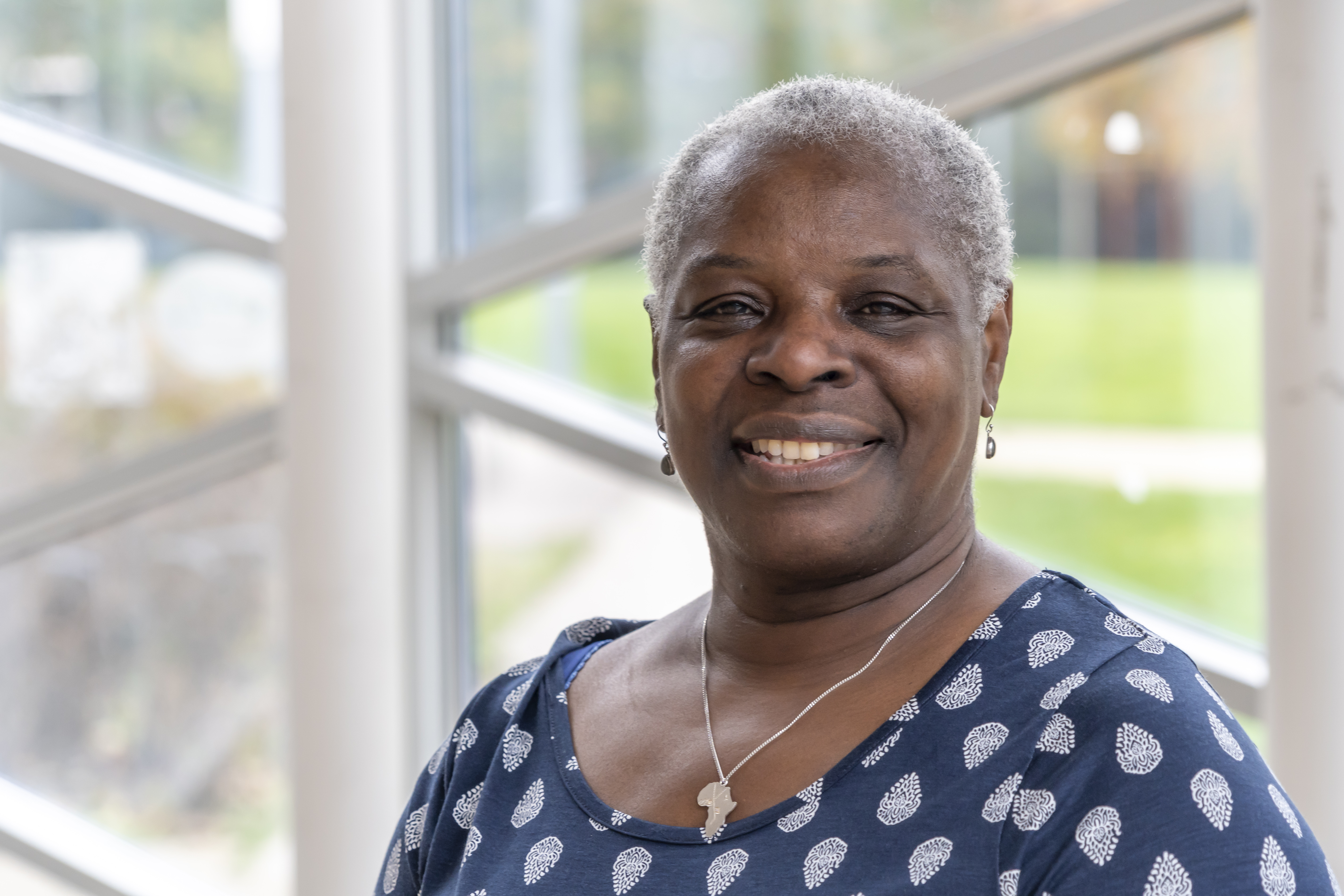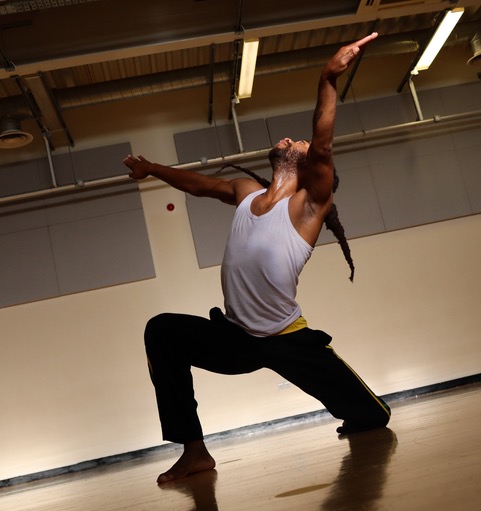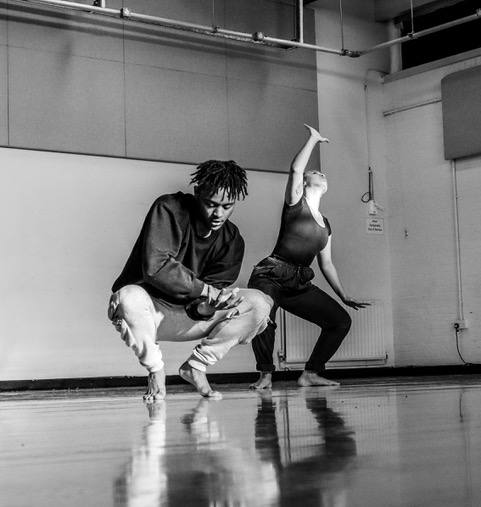Words by Ines Carvalho.
During Black History Month we look at the past, present and future of Black dance and how we can act towards a more equitable diverse dance scene. We spoke with Beverley Glean MBE, founder and artistic director of IRIE! dance theatre, about her journey and mission of raising the profile of Dance of the African Diaspora (DAD) in the United Kingdom.
Founded in 1985, the mission of IRIE! dance theatre, to heighten the profile of Black dance and dancers in the UK, remains steadfast. The aim is to change the landscape of British dance by developing a more diverse and equal practice. As a touring company IRIE! created a unique repertoire combining traditional African & Caribbean with Western Contemporary Dance forms. However, over the past decades, its work has been more focused on reshaping the fields of accredited training and its work in the community.
As a result, IRIE! established the BA (Hons) Degree in Diverse Dance Styles – the only course of its kind in Europe — and delivers a regular programme for its local community and communities around London. For Beverley Glean, this was an inevitable journey for IRIE! dance theatre: “I now understand how big that mission is and, as the company has grown, other issues have come to light. In fact, it was not only about the artform, but educating and getting people to understand the importance of DAD and its cultural important as part of our heritage in the UK”.
The organisation relocated from the Albany in Deptford to its new base at the Moonshot Centre, Fordham Park, in New Cross in 2007. The centre is a significant building in the history of Black people in south-east London. Constructed in the wake of the New Cross fire in 1981, local people successfully lobbied for and invested in a building as a base to support the African and Caribbean communities of New Cross and in particular, black youths. Fordham Park was also the starting point for “Black People’s Day of Action” where 20,000 people marched to Hyde Park in protest for the lack of justice for the 13 young people who died in the fire. “We are privileged to be based in a space that holds such significance to the Black community. We like to think our work within that community impacts the very young right through to our elders,” adds Beverley. “We want what we do at Moonshot to make young people aware of their cultural heritage, and at the same time provide a sense of pride for elders who took action and marched for their community. That’s why it’s crucial for us at IRIE! dance theatre to bring the community together, so they understand and can share the value of what’s been achieved”.
The BA (Hons) Diverse Dance Styles plays a key role in building the profile of DAD. The course was planned and designed by Beverley and Rosie Lehan who both consider that the degree was an inevitable step for IRIE! after having run a foundation degree. They met each other during their training at Trinity Laban Conservatoire of Music and Dance and after starting their professional careers, they realised the need for a more diverse dance practice. “Rosie was teaching dance and was keen to introduce a more diverse programme that reflected the young people she was working with. She invited the company to perform for and workshop with the students. This led to several residencies.”
“Together we realised there was a real gap that needed to be bridged because DAD was nowhere to be found on the curriculum”. Dance and Diversity was a three year action research programme undertaken by Beverley and Rosie, funded by National Endowment for Science Technology and the Arts (NESTA) and Arts Council England (ACE) to look into cultural diversity in dance training with particular focus on African and Caribbean dance. The research addressed barriers to training in the UK and took them to America, Africa and the Caribbean to investigate examples of good practice happening internationally.
In 2007, on returning from the final leg of the international element of the research they were asked to write and deliver a foundation degree, which ran as a partnership between IRIE! dance theatre, City and Islington College and London Metropolitan University for 10 years. The findings from Dance and Diversity research have been shared locally, nationally and internationally; it has been a journey of development and breaking boundaries. “We recognise the importance of what we are doing, in fact what we have done. We are breaking boundaries. The issue for DAD is that it was not seen as a viable form with technique and discourse to be studied academically”.
For Beverley, the real work of the BA is to change the narrative. She considers that a number of critical developments have taken place to support the change “We have Black academics and artists writing about Black dance and their experience as dancers in the UK dance sector. We now have several PhDs in dance who are Black, writing about DAD. In Higher Education we have IRIE! dance theatre’s (validated by University of Roehampton) BA (Hons) Diverse Dance Styles and University of East London’s BA (Hons) Dance Urban Practice. Progress is not as fast as we would like to see, but it’s happening and we believe we have a hand in developing and changing the dance landscape”.
Despite the above there is still much to do. But for Beverley, the future is bright: “We are at a crossroad in this moment; a teachable moment. In relation to the Black Lives Matter movement coupled with the enormous contribution made by Black people to British culture, this is the time to address issues around opportunity, fairness and equality. We have to work towards a place where this type of conversation becomes redundant. Instead, we should be discussing creativity, performance quality, choreography and the arts without it being defined by the colour of your skin. We want to be seen, so changing people’s perceptions about DAD is a critical part of that change. You’ll be surprised by the similarities.
For the future, IRIE! will continue to blaze the trail it has set over the past 35 years. “We know that the DAD sector and our local community expect this of us. We will continue to focus on children and young people, providing activities that build confidence and provide room for creativity and positive thinking. We will continue to highlight our work with elders to encourage intergenerational connections, reduce isolation and provide a sense of wellbeing. Vital to the above is the organisation’s need to never lose sight of the vision where DAD is fully integrated into the teaching and practice of the wider dance agenda, providing a sense of value to all of society. Most importantly, our efforts include legacy, how we develop, maintain and pass on”.
Black Dance in the UK — Projects, Organisations and Artists we should keep an eye on
We also asked Beverley Glean for some suggestions regarding current DAD activities in the UK. Here are their top recommendations:
- One Dance UK under DAD holds a wealth of information on what’s happening in DAD
- Fubunation, founded in 2017 by Rhys Dennis and Waddah Sinada, combines contact improvisation with influences from Hip-Hop and African Dance styles;
- Kauma Arts, an online creative hub that enables and creates a supportive connected community that harness the power of exchange, knowledge and integrity to impact creative change globally;
- Feel the Rhythm Productions promotes DAD through regular events such as the annual Afro Dance Xplosion Festival (happening between 23-25 October), alongside regular workshops and interviews;
- Dr Adesola Akinleye, editor of Narratives in Black British Dance;
- Toussaint To Move, Akeim Toussaint Buck is an interdisciplinary performer and dance maker;
- Artistry Youth Dance a vibrant London youth dance company who showcase performances with young people of African and Caribbean decent;


